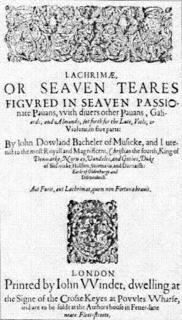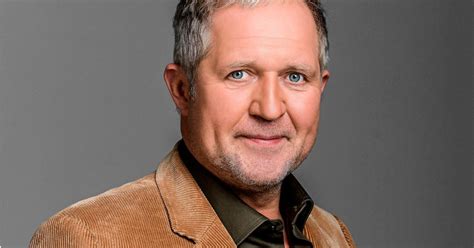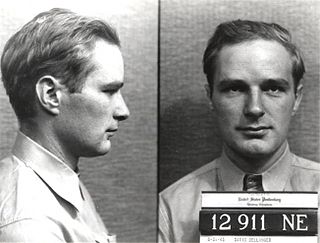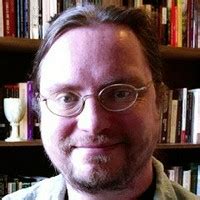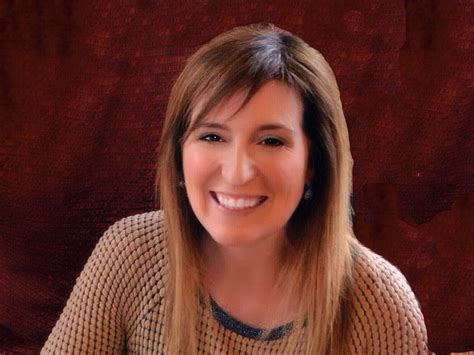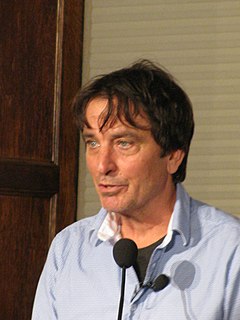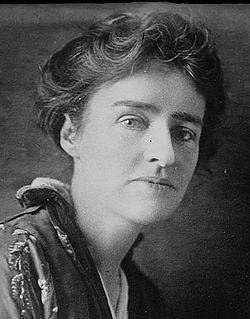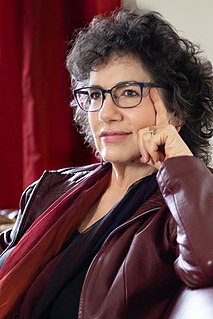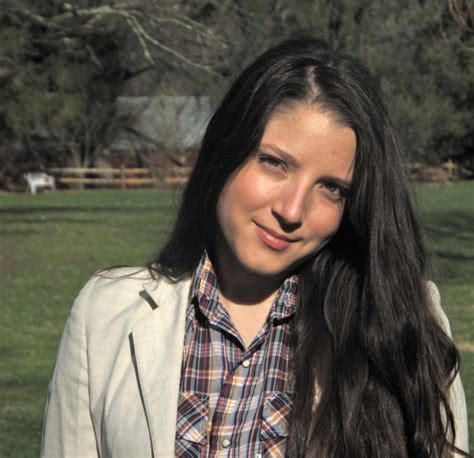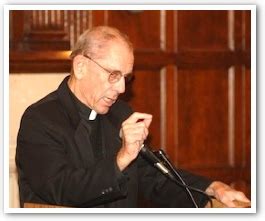Top 361 Plato S Quotes & Sayings - Page 5
Explore popular Plato S quotes.
Last updated on April 20, 2025.
If they [Plato and Aristotle] wrote about politics it was as if to lay down rules for a madhouse. And if they pretended to treat it as something really important it was because they knew that the madmen they were talking to believed themselves to be kings and emperors. They humored these beliefs in order to calm down their madness with as little harm as possible.
It is in the stomach of plants that development begins, and ends in the circles of the universe. 'Tis a long scale from the gorilla to the gentleman,--from the gorilla to Plato, Newton, Shakespeare,--to the sanctities of religion, the refinements of legislation, the summit of science, art, and poetry. The beginnings are slow and infirm, but it is an always accelerated march.
I'm happy to have interns at The Weekly Standard and happy to have readers of The Weekly Standard, but if you all tell me that you were busy reading Plato and [Lev] Tolstoy and playing violin in the orchestra, I'd say that was great. I wouldn't tell you to take time out from that to get involved in political journalism.
He that makes himself famous by his eloquence, justice or arms illustrates his extraction, let it be never so mean; and gives inestimable reputation to his parents. We should never have heard of Sophroniscus, but for his son, Socrates; nor of Ariosto and Gryllus, if it had not been for Xenophon and Plato.
An interlude of false innocence has passed. Today, as we enter the post-photographic era, we must face once again the ineradicable fragility of our ontological distinctions between the imaginary and the real, and the tragic elusiveness of the Cartesian dream. We have indeed learnt to fix the shadows, but not to secure their meanings or to stabilize their truth values; they still flicker on the walls of Plato's cave.
The theory of social contracts extends as far back as Plato. However, it was the great 18th century social philosophers John Locke, Thomas Hobbes, and Jean-Jacques Rousseau who brought the concept of a social contract between citizens and governments sharply into political thinking, paving the way for popular democracy and constitutional republicanism.
In prison, the gloves were off, the comforting rhetoric and rationalization were absent. To use a phrase from Plato, I saw the laws of our society 'writ large' - its flagrant inequalities of opportunity and disastrous results, its contempt for vast categories of our fellow human beings, its reliance on institutional violence.
That is why I think, in defiance of Plato, that there is at once error and vulgarity in saying that poetry is a lie, except in the sense that Cocteau wrote one day: I am a lie who always tells the truth. The only poetry which lies purely and simply is academic, pseudo-classical, conceptually repetitive poetry, and it is not poetry.
Art is the distillate of life, the winnowed result of the experience of a people, the record of the joyous adventure of the creative spirit in us toward a higher world; a world in which all ideas, thoughts, and forms are pure and beautiful and completely clear, the world Plato held to be perfect and eternal. All works that have in them an element of joy are records of this adventure.
The error which underlies the very existence of this debate is that there is some kind of perfect Platonic form of the computer language, which some real languages reflect more perfectly than others. Plato was brilliant for his time but reality is not expressable in terms of arbitrary visions of perfection, and furthermore, one programmer's ideal is often another's hell.
Plato defined a slave as one who accepts from another the purposes which control his conduct. This condition obtains even where there is no slavery in the legal sense. It is found wherever men are engaged in activity which is socially serviceable, but whose service they do not understand and have no personal interest in.
I cannot favour laws such as that of Idaho, which allows sterilization of 'mental defectives, epileptics, habitual criminals, moral degenerates, and sex perverts.' The last two categories here are very vague . . . The law of Idaho would have justified the sterilization of Socrates, Plato, Julius Caesar, and St. Paul.
In the academic setting, you take (typically) lonely, interesting middle-aged men and beautiful, intelligent young women, and everybody's motivations for display and conquest are engaged to the max. Sublimated, this can be a powerful force for the good - Plato had a lot to say about that - but acted upon it can bring evils without end.
This does not mean that you are warmongers. On the contrary, the soldier above all other people prays for peace, for he must suffer and bear the deepest wounds and scars of war. But always in our ears ring the ominous words of Plato, that wisest of all philosophers: "Only the dead have seen the end of war.
Homer, Hesiod, Pythagoras, Plato, and Cicero, just to name a few, all lived in pagan societies. Some of the greatest political and military leaders of all time, such as Alexander the Great, Pericles of Athens, Hannibal of Carthage, and Julius Caesar of Rome, were all pagans, or else living in a pagan society.
And when he [the author of the universe] had compounded the whole, he divided it up into as many souls as there are stars, and allotted each soul to a star. And mounting them on their stars, as if on chariots, he showed them the nature of the universe and told them the laws of their destiny. - "Timaeus" by Plato 427-347 B.C.
We may like well to know what is Plato’s and what is Montesquieu’s or Goethe’s part, and what thought was always dear to the writer himself; but the worth of the sentences consists in their radiancy and equal aptitude to all intelligence. They fit all our facts like a charm. We respect ourselves the more that we know them.
While [Plato] affirmed with emphasis that the place of the individual in society should not be determined by birth or wealth or any conventional status, but by his own nature as discovered in the process of education, he had no perception of the uniqueness of individuals. For him they fall by nature into classes, and into a very small number of classes at that.
Indeed, the very first acknowledgment (as far as I am aware) of the attraction of mutilated bodies occurs in a founding description of mental conflict. It is a passage in The Republic, Book IV, where Plato’s Socrates describes how our reason may be overwhelmed by an unworthy desire, which drives the self to become angry with a part of its nature.
The supreme question about a work of art is out of how deep a life does it spring. Paintings of Moreau are paintings of ideas. The deepest poetry of Shelley, the words of Hamlet bring our mind into contact with the eternal wisdom; Plato's world of ideas. All the rest is the speculation of schoolboys for schoolboys.
The real community of man, in the midst of all the self-contradictory simulacra of community, is the community of those who seek the truth, of the potential knowers, that is, in principle, of all men to the extent they desire to know. But in fact this includes only a few, the true friends, as Plato was to Aristotle at the very moment they were disagreeing about the nature of the good.
One can't help thinking, Daddy, what a colourless life a man is forced to lead, when one reflects that chiffon and Venetian point and hand embroidery and Irish crochet are to him mere empty words. Whereas a woman- whether she is interested in babies or microbes or husbands or poetry or servants or parallelograms or gardens or Plato or bridge- is fundamentally and always interested in clothes.
In the most general terms, the Enlightenment goes back to Plato's belief that truth and beauty and goodness are connected; that truth and beauty, disseminated widely, will sooner or later lead to goodness. (While we're making at effort at truth and goodness, beauty reminds us what we're hold out for.)
I am a humanist because I think humanity can, with constant moral guidance, create reasonably decent societies. I think that young people who want to understand the world can profit from the works of Plato and Socrates, the behaviour of the three Thomases, Aquinas, More and Jefferson - the austere analyses of Immanuel Kant and the political leadership of Abraham Lincoln and Franklin Roosevelt.
The knowledge that is suited to our situation and powers, the whole compass of moral, natural, and mathematical science, was neglected by the new Platonists; whilst they exhausted their strength in the verbal disputes of metaphysics, attempted to explore the secrets of the invisible world, and studied to reconcile Aristotle with Plato, on subjects of which both these philosophers were as ignorant as the rest of mankind.
Certain characteristics of the subject are clear. To begin with, we do not in this subject deal with particular things or particular properties: we deal formally with what can be said about any thing or any property. We are prepared to say that one and one are two, but not that Socrates and Plato are two.
The Gospels were not thought of as works of literature. People were not concerned with the literary reputation of Matthew or Mark, but with the substance of their records of our Lord's life. They did not have to respect their actual words, as they would if they were transcribing the works of Thucydides or Plato.
I imagine that whenever the mind perceives a mathematical idea, it makes contact with Plato's world of mathematical concepts... When mathematicians communicate, this is made possible by each one having a direct route to truth, the consciousness of each being in a position to perceive mathematical truths directly, through the process of 'seeing'.
Let us say in passing that since (philosophical) remedies are often worse than the malady, our age, in order to be cured of the Plato sickness, has swallowed such doses of a relativist, vaguely skeptical, lightly spiritualist and insipidly moralist medicine, that it is in the process of gently dying, in the small bed of its supposed democratic comfort.
This missing science of heredity, this unworked mine of knowledge on the borderland of biology and anthropology, which for all practical purposes is as unworked now as it was in the days of Plato, is, in simple truth, ten times more important to humanity than all the chemistry and physics, all the technical and indsutrial science that ever has been or ever will be discovered.
The Christian priesthood, finding the doctrines of Christ leveled to every understanding, and too plain to need explanation, saw, in the mysticism of Plato, materials with which they might build up an artificial system which might, from it's indistinctness, admit everlasting controversy, give employment for their order, and introduce it to profit, power and pre-eminence.
Socrates called beauty a short-lived tyranny; Plato, a privilege of nature; Theophrastus, a silent cheat; Theocritus, a delightful prejudice; Carneades, a solitary kingdom; Aristotle, that it was better than all the letters of recommendation in the world; Homer, that it was a glorious gift of nature; and Ovid, that it was favor bestowed by the gods.
I often think . . . that the bookstores that will save civilization are not online, nor on campuses, nor named Borders, Barnes & Noble, Dalton, or Crown. They are the used bookstores, in which, for a couple of hundred dollars, one can still find, with some diligence, the essential books of our culture, from the Bible and Shakespeare to Plato, Augustine, and Pascal.


